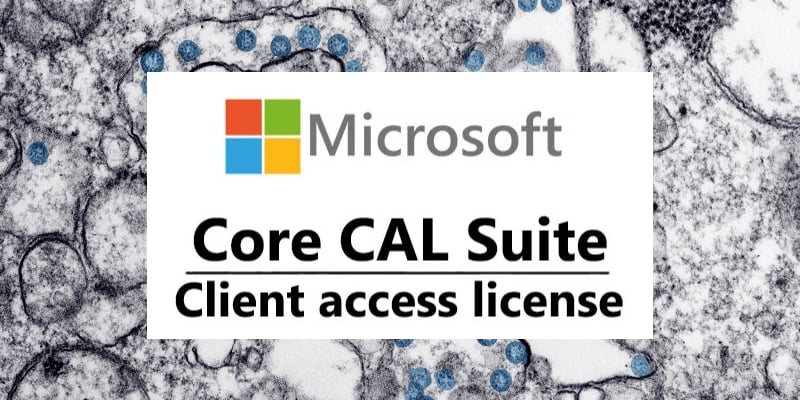Two Main Questions about Microsoft Client Access License (CAL): What Is It? and Why Does It Need?
What is a client license?
A client license (or CAL – Client Access License) gives the users the legal right to access the Microsoft server software for Windows itself, SQL server, Exchange server. By itself, the license does not give the individuals and devices the right to connect to the server. For this purpose, each user or device must have a client license.
Server manufacturers who distribute a software with servers can supply the client access licenses. At the same time, the CALs purchased with the server provide the same rights as similar ones purchased separately from equipment. But many people do not know that Microsoft no longer delivers the client access licenses with Windows Server licensed through the OEM channel.
Types of client licenses
The client licenses are of two types, and depending on the work organization in the company (whether the employees use several devices or, on the contrary, different people work alternately for some devices), you can significantly optimize costs by choosing the appropriate type.
User CALs
 Depending on the number of users, you buy the CAL for each employee. It does not matter how many devices are used by the workers for whom you bought the licenses. It makes sense to acquire the CALs by the number of users if your company’s employees need access to the corporate network from several different devices or if you do not know from which particular devices they will access. They are also beneficial in cases where the organization has more devices than users.
Depending on the number of users, you buy the CAL for each employee. It does not matter how many devices are used by the workers for whom you bought the licenses. It makes sense to acquire the CALs by the number of users if your company’s employees need access to the corporate network from several different devices or if you do not know from which particular devices they will access. They are also beneficial in cases where the organization has more devices than users.
Device CALs
 Depending on the number of devices, you buy the licenses for each device that accesses the server. It does not matter how many users work with a licensed device. The device CALs can reduce costs and simplify administration in companies where several employees can use one device, for example, when working in several shifts.
Depending on the number of devices, you buy the licenses for each device that accesses the server. It does not matter how many users work with a licensed device. The device CALs can reduce costs and simplify administration in companies where several employees can use one device, for example, when working in several shifts.
In a large organization can be multiple servers. It is useful to know that having the CAL for a user (or a device) allows him/her to legally work with any of them.
Do you need CALs if users/devices do not connect directly to the Microsoft server software?
A company may use a specific server product for personnel management, accounting, etc., with its own licensing system. If this product itself accesses the Microsoft’s server software, for example, SQL Server, then this scheme is called multiplexing, and for legal use, you need a CAL (in this example, SQL Server CAL) by the number of real users/devices.
- Category: microsoft
- Tags: CAL, client access license, microsoft, sql server, Windows Server
